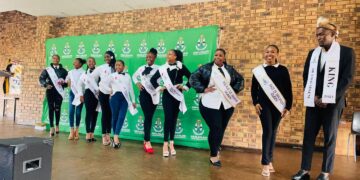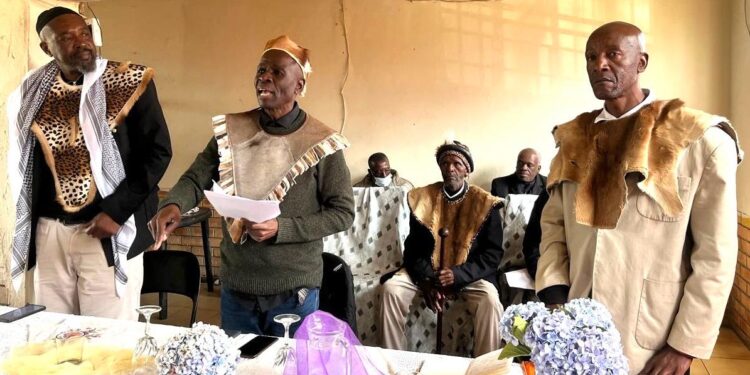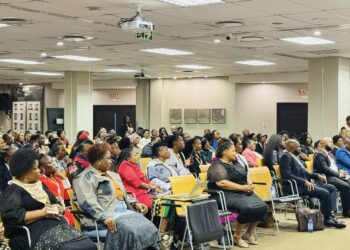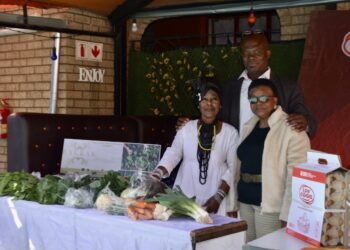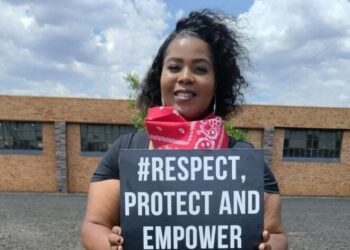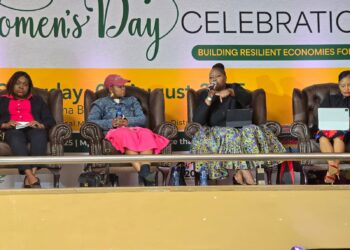BELFAST – The Mogola Royal community, also known as Bakoni ba ga Mogola, is seeking redress over land they believe rightfully belongs to them.
The Royal community, whose historical roots lie in the Belfast area – now known as eMakhazeni – has gathered what they describe as compelling evidence asserting their rightful ownership of portions of land within the nearly 36-square-kilometre area.
On Thursday, May 15, various family groupings travelled from Mpumalanga, Limpopo, and Gauteng to the national Department of Agriculture, Land Reform and Rural Development (DALRRD) to make oral representations to departmental officials.
Ancestral graves, artefacts, family trees, written records, and oral history from living elders all form part of the historical evidence that the land rights must be returned to the Bakoni ba ga Mogola Royal family.
According to Charles Mogola, secretary of the Royal Council, no positive feedback has been received since the claim was registered in 1998. He said countless letters, emails, and visits to the DALRRD offices have yielded no progress.
“We all belong to the Bakoni ba ga Mogola community, which wants to make a mass claim for land in Mpumalanga. We were unlawfully removed from our land, which is now occupied by mining activities. They have destroyed our land, the graves of our forebears, and our heritage,” he said.
“There are developments happening without involving the Royal family. We wonder how these mines obtained their rights without consulting the Royal community.”
According to a historical background compiled by Phillip Mogola, chairperson of the Royal Council, Groenewald Mogola, the late King of Bakoni ba ga Mogola, is their forefather.
Groenewald, a resident of Belfast, was born in 1885 and passed away in 1965. His grave remains in Belfast.
He was a member of the African National Congress (ANC) and later served as secretary to Dr Alfred Bitini Xuma in 1940. Dr Xuma was the first black South African to qualify as a medical doctor and served as ANC president-general from 1940 to 1949.
Groenewald, who worked as a secretary in the then Department of Home Affairs, played a pivotal role in renewing Dr Xuma’s passport after it had been revoked, enabling him to re-establish international relations crucial for South Africa’s liberation during the apartheid era.
Through Groenewald’s assistance, Dr Xuma was able to travel abroad in 1957 to rebuild these political connections. Groenewald also worked with Senator William George Ballinger, who was known for advocating for the rights of black South Africans.
The Bakoni ba ga Mogola settled in areas later known as Ohrigstad, Lydenburg, Belfast, Carolina, Hendrina, and Middelburg, among others.
“The current condition of Bakoni heritage sites is under serious threat,” wrote Phillip. “Many are located on private land and some, including graves, have been destroyed to make way for developments such as mining and farming.”
“Despite protective legislation, petroglyphs are frequently damaged by visitors, landowners, cattle movement, fires, and looting.”
Phillip’s research uncovered that the Bakoni ba ga Mogola once engaged in trade with neighbouring communities such as the Bapedi and coastal traders like the Portuguese and Arabs, using river systems to exchange iron tools, textiles, and beads for grain, cattle, and ivory.
It is believed the tribe descends from Marangrang Matenji, a traditional warrior-king of Bakoni ba Lebaleng (Lebaleng is the Sekoni word for the present-day Nkangala District). He won numerous tribal battles and met another warrior, Thoka Mogola, who had fled the Riba family.
Thoka, a traditional healer and spiritual advisor, became Marangrang’s key ally, known for using rituals during battles.
“This is why some Mogola Royal family members are still known for their traditional healing practices and for running dikoma (initiation schools) in Lebaleng,” Phillip explained.
Marangrang was later killed during the Ga-Mphahlele battle. Thoka survived, albeit seriously injured, and returned to Lebaleng. He named local rivers and places with Sekoni names, including Mohlotsi for Middelburg, Masiyanoka for Hendrina, and Mapelellejana for Bethal.
Thoka had seven wives, resulting in seven family lines. Today, the graves of his descendants are scattered across Middelburg, Belfast, Wonderfontein, Hendrina, Bethal, Leeubank, Draaikraal, and Marble Hall.
Chief Josiah Mogola, the current traditional leader of Bakoni ba ga Mogola, said their family history stretches back over a century.
“It’s challenging to compile complete histories for all family branches at once. This could take 30 to 40 years,” he said.
“But what we currently have clearly shows that the present Mogola family members descend from the Royal family of Bakoni ba Lebaleng, including Groenewald Mogola.”










